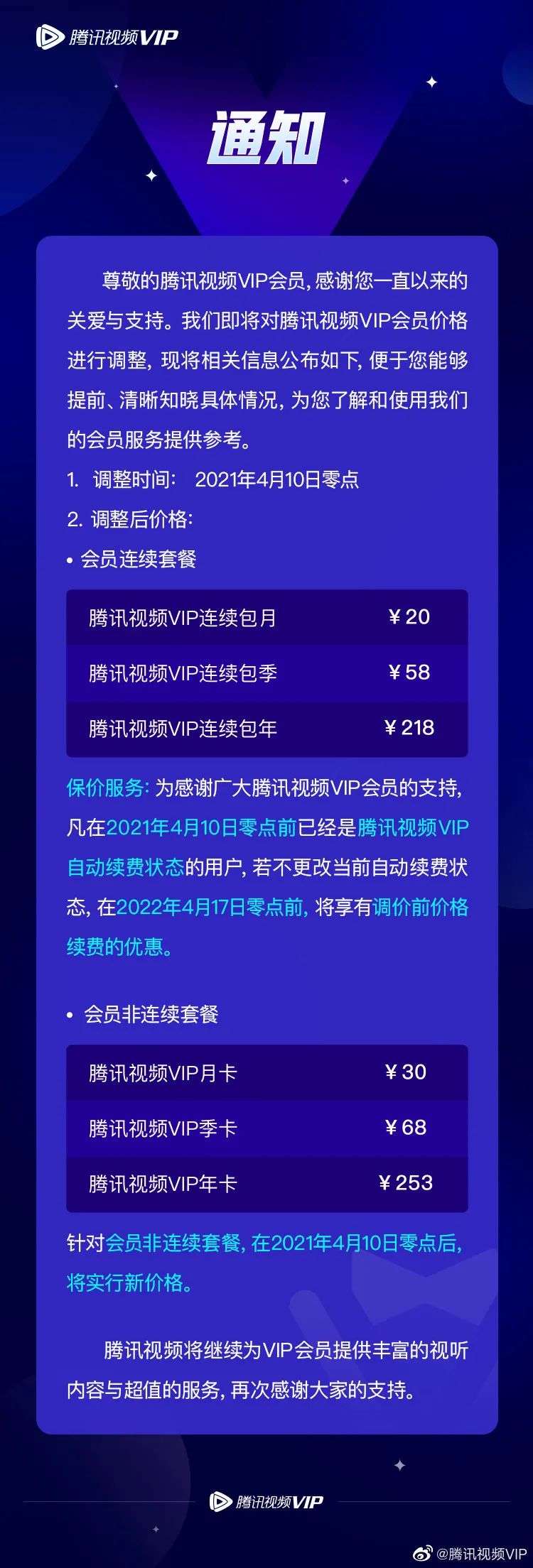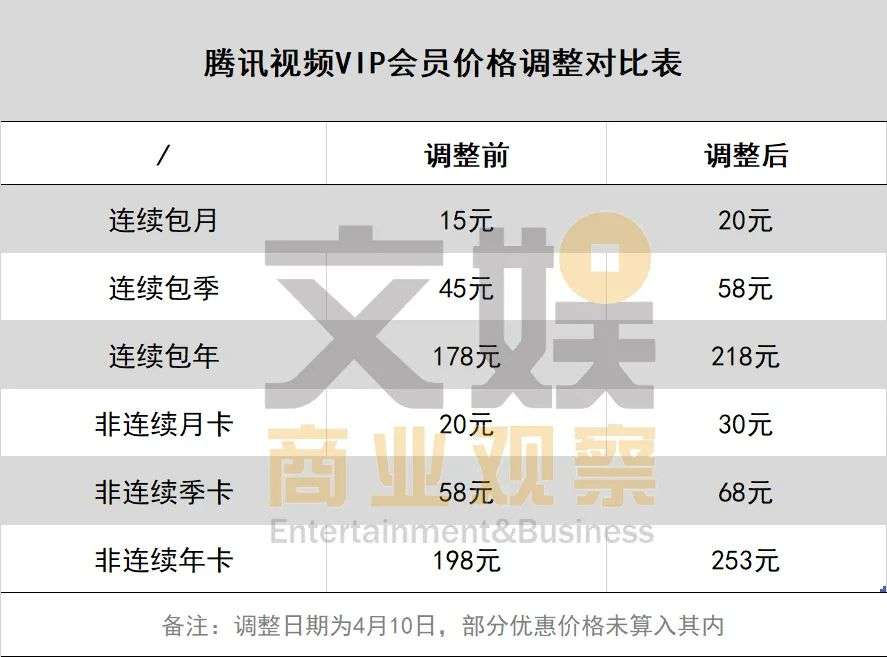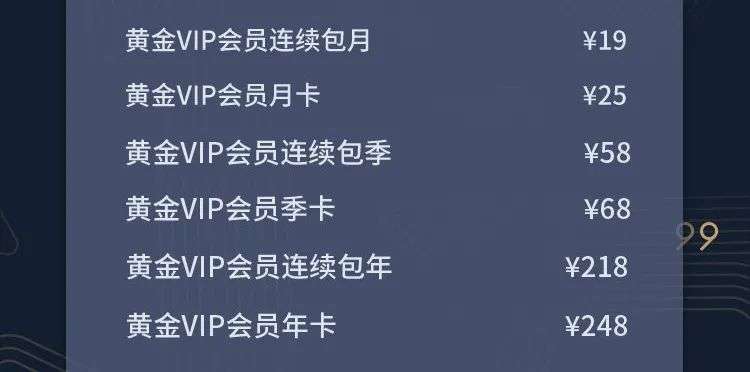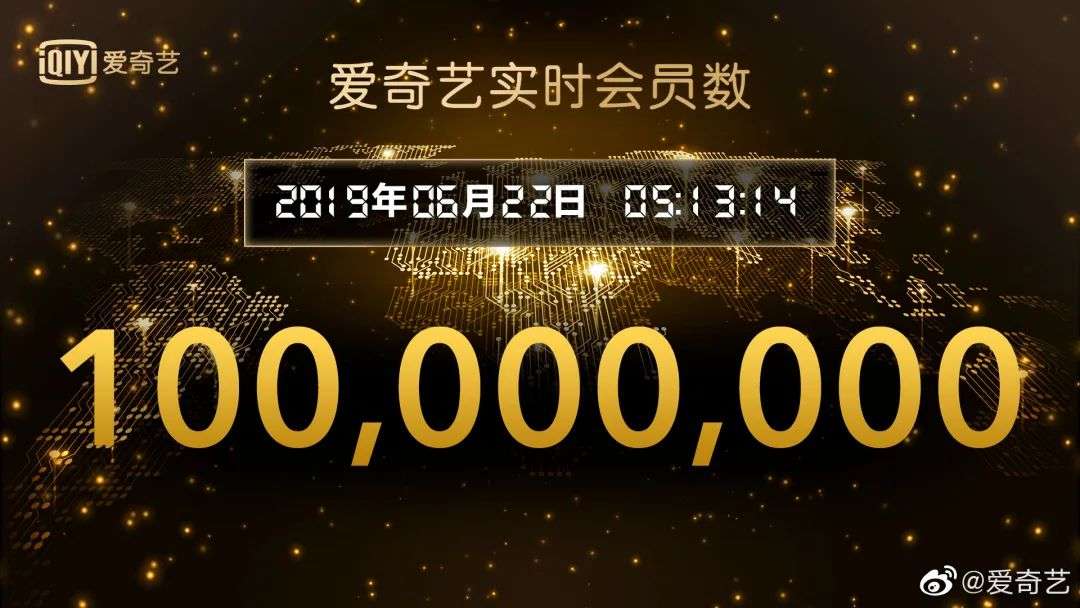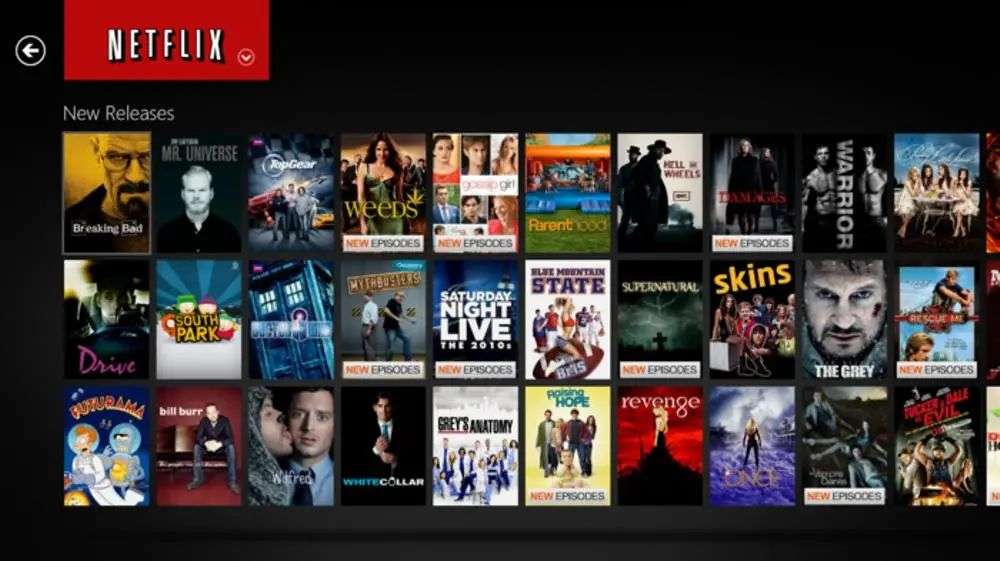Has your Tencent Video VIP renewed?
Editor’s note: This article is from the micro-channel public number “Entertainment Business Watch” (ID: wenyushangyeguancha), Author: Amu.
Have you renewed your VIP?
A few days ago, Tencent Video announced through its official Weibo that the price of VIP members will be adjusted from 0:00 on April 10, 2021, and the overall price rise will be about 30%. This also makes Tencent Video become another video platform that announced price increases for VIP members after iQiyi.
VIP payment model has been controversial all the way from its birth to development all the way, and then to advanced on-demand and other forms. Behind this round of member price increases, is it a normal price fluctuation based on market rules, or a headwind action based on platform earnings?
Why can the video platform field work together to “drive up” prices when there is a serious “involution” phenomenon in all walks of life?
Price increase? Member prices are rising
In recent years, with the cultivation of user habits on video platforms, the public has gradually formed the consciousness of paying for content. However, viewers’ payment for content has long formed a relatively fixed price standard, and this price increase is also the first price increase for Tencent Video since it opened its membership model.
According to the price adjustment comparison table, it can be clearly found that this round of price increase is not just a change of a little bit, but about a 30% increase. As can be seen from the table, the continuous monthly subscription model with the least increase rose from 15 yuan per month to 20 yuan per month, an increase of 5 yuan; the non-continuous monthly subscription model with the highest increase rose from 198 yuan per month to 253 yuan per month, an increase of 55 yuan.
If you don’t make a move, it’s amazing. Although it is the first price increase for Tencent Video, the price increase is still quite bold.
Coincidentally, in November last year, iQIYI, just like the first to start the membership payment model, was the first to implement member price increases, opening a new chapter in the video platform membership payment reform.
Comparing the price increase of Tencent Video in this round, it can be found that the price increase is comparable to the previous price increase of iQiyi, and it can even reach the level of one-to-one correspondence. Not only are the three price codes of consecutive seasons, season cards, and consecutive years directly equivalent, but for the rest of the consecutive monthly subscriptions, Tencent Video after the price increase is one yuan more expensive than iQiyi, and the normal monthly card Tencent Video is more expensive than iqiyi Five yuan, and in terms of ordinary annual cards, Tencent Video is five yuan more expensive than iQiyi.
Don’t look at the similarity in the pricing of the two members, but this includes a lot of pricing strategies:
First of all, from an overall point of view, Tencent Video’s pricing is slightly higher than that of iQiyi. From the side, it also reflects Tencent Video’s high recognition and trust in its own content. Member prices are higher. It can be seen that Tencent Video is trying to suppress Through iQiyi, it has a better meaning in membership fees.
Secondly, Tencent Video has adopted the same price as iQiyi for the consecutive seasons and season cards where user consumption is relatively frequent, and effectively competes on the same starting line.
Finally, Tencent Video is one dollar more expensive than iQiyi for monthly subscriptions at the lowest level of user consumption. According to consumer psychology, consumers tend to ignore the nuances of price at the lowest level of consumption. In other words, the vast majority of users will not choose another platform because of this difference in money.
Although there is no clear market survey data, the entertainment master found that the acceptance of price increases within the industry is much higher than that of the majority of netizens. However, all price increases need to be based on the continuous introduction of high-quality content, just like in the Weibo comments of Tencent Video’s VIP official announcement of price increases, many netizens mentioned that as long as the TV series “Haoyi Xing” is broadcast , The price increase is also acceptable.
It’s also worth noting that the price increase announcement, Users who have previously activated automatic renewal will start to adjust to the increased price after midnight on April 17.
Losing money? Content cost has shrunk
The reason why the industry’s acceptance of the increase in VIP fees for video sites is relatively high is that the annual losses of video sites have become a well-known reality.
Iqiyi’s previous 2020 financial report showed that iqiyi had a net loss of 7.9 billion yuan in the past year, and a net loss of 10.3 billion yuan in 2019; Tencent has not yet announced the profitability of Tencent Video in 2020. The net loss was 3 billion yuan; Alibaba also did not release Youku’s data, but it has previously shown that losses in digital media and entertainment have narrowed year-on-year and are still at a loss. The net loss in 2019 reached 10.566 billion yuan.
It is not difficult to see that, with the exception of Mango tv, the current domestic video platforms are basically in the stage of “making money at a loss”. Even if there is a lot of advertising revenue every year, it is far from filling the big hole in content cost.
Mango TV is able to excel in this one because it relied on the “broken arm” support of Hunan Radio and Television in the early days, and now it has formed a strong content incubation ability, which can earn viewers’ attention through self-made and original content.
The huge content costs of the three Aiyouteng companies are like the “three mountains” that overwhelm them. A while ago, the producer of the TV series “If You Are Well, It’s Sunny” sued video websites for lowering prices on copyrighted dramas and placing more prices on customized and self-made dramas. This was also affected by content costs.
However, both iQiyi and Youku have significantly converged in the past two years. They have changed their platform content layout tactics and no longer insist on high-cost content, and put more hope on “small and beautiful”. The content, especially the test in the field of account-sharing dramas, shows that the video platform has found a way to adapt itself through continuous exploration.
In addition to the excessive cost of content that makes the video platform unprofitable, there is another very important reason. The domestic content payment is still in its infancy.The most important thing is to cultivate user habits, to make users accept this model at a relatively low price, and then to increase prices, which is also the inevitable rule of the market.
Inner volume? Video platform turned against the wind
Although the major domestic video websites are fighting fiercely in content competition, there is an unprecedented consensus on the issue of VIP fees and price increases for paid content. Not only did it fail to form an “involution” in the industry, but instead involved more and more users and content.
According to the currently exposed iQiyi financial report, after iQiyi announced a member price increase last year, iQiyi’s average paying user income has risen from 121.5 yuan in 2018 and 134.9 yuan in 2019 to 2020. 162.2 yuan for the year.
The increase in average paying user income reflects the increase in membership renewal rates on the one hand, and on the other hand, it is actually affected by the increase in membership fees.
Correspondingly, the increase in the use cost of a single member will directly affect the overall number of members. According to the financial report, as of the fourth quarter of 2020, the number of subscription members of iQiyi was 102 million, a slight decrease from the same period last year.
Of course, this cannot be entirely attributed to the increase in membership fees, which is related to the quantity and quality of the platform’s paid content, the promotion of advanced on-demand mode, and even the current domestic market environment. In particular, the lack or interruption of content will directly lead to a decline in the number of members.
What can be discussed is that the domestic payment model is borrowed from foreign learning. In foreign markets, members of Netflix, Hulu, HBO and other video platforms are about $14 per month, and foreign countries have relatively strict crackdowns on piracy. In addition, many websites have their own membership subscription system, and there are very few free content. It is equal to no, so the price will be five or six times higher than the domestic price.
At the same time, price increases on video platforms are commonplace abroad. Netflix alone has experienced no less than five price increases since its establishment in 2010. During the epidemic last year, it rose directly by about 1 US dollar.
In economics, value determines the price, and the price is also affected by the relationship between supply and demand. When supply exceeds demand, the price falls, and when supply is less than demand, the price rises. Reflecting on the paid content of domestic video platforms, when high-quality premium content appears, the market is less than demand, and consumers can naturally accept price increases; when the content of the platform cannot meet the audience’s requirements at all, the supply exceeds demand. , Consumers will give up decisively. In short, users only pay for content.
